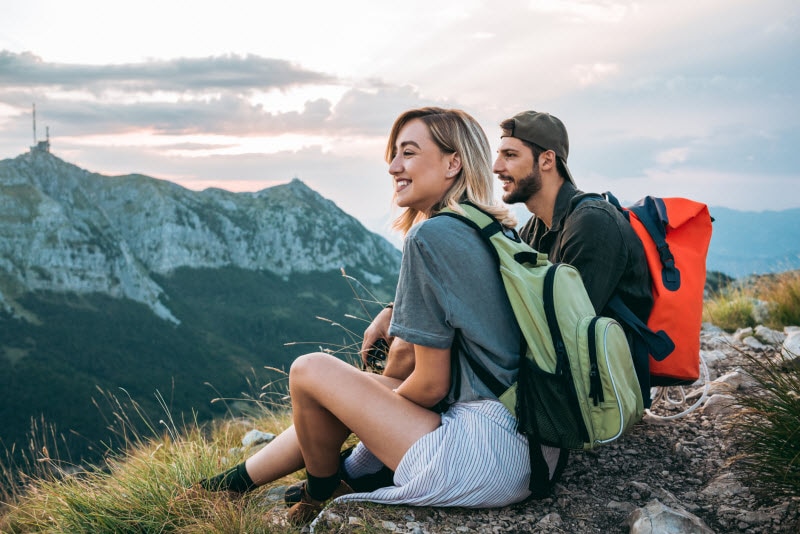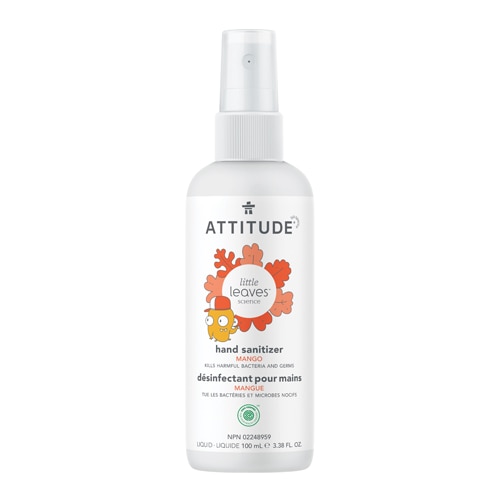[vc_row][vc_column][vc_column_text]
Travel offers us a delightful reboot: It takes us out of our humdrum lives and broadens our perspective, helps us relax and unwind, boosts productivity, encourages creativity and improves health through time spent outdoors and physical activity. But it turns out it does travel has even more positive ramifications than you might expect. And the benefits stay with us long after we’ve gotten the last bits of sand out of our clothing. Here’s why.

The Mental Health Benefits of Travel
Boosts happiness
According to award-winning researcher Amit Kumar, an assistant professor of marketing and psychology at The University of Texas at Austin’s McCombs School of Business, several key studies emphatically support that choosing to put money toward experiences over things translates into a significant investment in one’s happiness.
What researchers call “
experiential purchases,” (trips, outdoor recreation, eating out), provides a more promising route to satisfaction than purchasing material goods (as in that new phone you’ve been erroneously coveting). The sense of fulfillment from experiences is long-lived, persisting in memory long after the event, while the flush of material ownership is short. We adapt to our new phones and move on. Why is this so? For one thing, experiences are less vulnerable to comparison—the thief of joy—than material goods are.
In the study review, Kumar writes, “It can peeve consumers to find out someone else has fancier jewelry and a nicer wardrobe than they do, and it can be deflating to discover that another person paid less for the latest electronic good to hit the shelves. Learning about others’ positive experiences, however, is less problematic. Destructive comparisons are less common for experiential consumption, as one’s experiences are uniquely theirs. A hike up a mountain or through a jungle tends to be evaluated on its own terms rather than relative to purchases other people have made.”
Another way travel boosts happiness is because of the pleasant anticipation it can stir. Experiences can make consumers feel happy even before they’ve felt the sand between their toes, had their first bite or sip, or heard the opening chords at a concert.
Encourages social connections
Travel enlarges us in a wide variety of ways, many of them unanticipated. When former U.S. President and Nobel Laureate Barack Obama was interviewed in 2019 at the World Travel & Tourism Council’s global summit, he said “One of the benefits of the travel industry is to remind people both of the incredible value of the diversity of this planet and the differences we have. But travel also reminds us of what we share and what we have in common. And the ability for us to recognize ourselves in each other.”
This heightened sense of connection, to ourselves, to one another and the world at large, is one of travel’s most unique benefits.
Connection is a form of happiness, researchers who study happiness will be quick to tell you.
An increasing body of post-pandemic research suggests there is a
link between social isolation and loneliness to poor mental and physical health, which was then further exacerbated by the pandemic. Travel is inherently social. Most of the things we do when we travel, such as going out to eat, visiting the sites and even simply walking the streets are all activities likely to be done with other people.
“This social value is likely to be an especially important mechanism, as positive social relationships are essential to wellbeing. Humans, after all, are a social species with a fundamental need to belong,” writes Kumar.
Juicy conversation fodder
Less obvious but just as beneficial are the types of conversation that travel can engender, even before you take your trip. Conversation is necessarily social. Social interaction, in turn, is an important facet of well-being, with a growing body of research indicating that positive social relationships promote happiness. The prospect of travel, the act of travel and the retelling of travel all nourish
meaningful conversations, which is one of the ways people feel most connected to one another.
Beyond the inherent social nature of travel itself, experiences such as travel tend to be talked about more than possessions. This enables people to derive more lasting satisfaction from the experiences that travel affords than talking about “stuff.” And although experiences are bey definition fleeting, they live on in the stories people tell. In fact, not only do experiences make better story material for those speaking about them, but as listeners we enjoy hearing about someone’s experiences more than their material possessions.
Even the run up to a trip can provide meaningful conversation: In my interview with Kumar he says, “it turns out that people also really talk a lot about experiences that they're going to engage in, in the future. And those social interactions also provide us with happiness. Anything that's making us feel connected to someone else is likely to make us feel positive. If we can talk to people about where we're going to go, then those conversations can provide us with value as well.”
Becomes the building blocks of our identity
One’s experiences are uniquely one’s own. Travel, for example, is deeply reflective of one’s identity. Material goods don’t define us as much as experiences do. This is clear from studies suggesting that people are more likely to include meaningful experiential purchases than meaningful material purchases in narratives that comprise their life story.
In other words, investing in experiences tends to be the kind of investment that contributes to who one is and can subsequently contribute to happiness.
Increases gratitude and generosity
One of the most surprising benefits of travel is the way it increases the sense of
gratitude.
This matters because feeling grateful is associated with myriad benefits, including a positive relationship between gratitude and helpful social behavior. When people think about experiences they’ve bought, compared to the “stuff” they’ve purchased, they are more inspired to give to others.
One study showed that participants in two experiments were more generous to anonymous partners in economic games when they previously recalled an experiential purchase they had made. If they previously recalled a significant material purchase, they were less generous.
“These results are intriguing because they suggest that benefits of experiential consumption apply not only to the consumers of those purchases themselves, but potentially pass on to other people around them,” Kumar concludes.
It might not be too much of a leap to extrapolate that travel makes us better people and the contributes to the good of society. Spending on experiences rather than possessions can lead to better treatment of even unknown others, encouraging a pay-it-forward attitude.[/vc_column_text][/vc_column][/vc_row][vc_row][vc_column][vc_text_separator title="Featured Products" border_width="2"][vc_row_inner equal_height="yes" content_placement="middle" gap="35"][vc_column_inner width="1/3"][vc_single_image image="173662" img_size="full" alignment="center" onclick="custom_link" img_link_target="_blank" css=".vc_custom_1710590995336{padding-right: 7% !important;padding-left: 7% !important;}" link="https://www.vitacost.com/badger-organic-aromatherapy-travel-kit-5-pack"][/vc_column_inner][vc_column_inner width="1/3"][vc_single_image image="173664" img_size="full" alignment="center" onclick="custom_link" img_link_target="_blank" css=".vc_custom_1710591016252{padding-right: 7% !important;padding-left: 7% !important;}" link="https://www.vitacost.com/boiron-jet-lag-relief"][/vc_column_inner][vc_column_inner width="1/3"][vc_single_image image="173663" img_size="full" alignment="center" onclick="custom_link" img_link_target="_blank" css=".vc_custom_1710591034560{padding-right: 7% !important;padding-left: 7% !important;}" link="https://www.vitacost.com/natural-factors-travelbiotic-10-billion-active-cells-bb536"][/vc_column_inner][/vc_row_inner][/vc_column][/vc_row]




